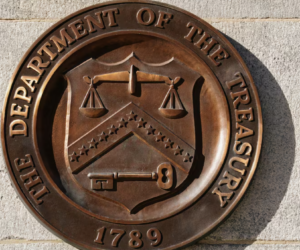By Dan Byrne for AMLi
NEW FINANCIAL CRIME GUIDELINES from the European Banking Authority (EBA) this morning represent a major development in the EU’s game plan.
The policy change marks a significant jump in expectations that authorities are placing on banks and other financial institutions, tying them to more AML responsibilities as Europe seeks to clamp down on financial crime.
Essentially, the EBA is asking prudential supervisors to enlarge the scope of their work. Prudential supervisors are individuals who assess the efforts of a financial institution, or a broader market, to ensure their integrity in the face of various risks.
They do this by monitoring those risks ensuring enough capital exists to cover them.
These tests are usually done through a Supervisory Review and Evaluation Process (SREP), but from now on, the EBA wants risks associated with money laundering and financial crime to be a factor in this process, according to the information released this morning.
This kind of publication from the EBA is classed as an ‘opinion’, and it isn’t legally binding.
However, EBA ‘opinions’ do function as advice on best-practice within the wider context of its central active role in EU finance as stated in its regulatory objectives.
So, if acted on, what does this advice mean for the fight against dirty money in Europe, and the financial institutions involved?
1. Part of a Tightening Grip
First and foremost, the EBA has said that this recommendation is about introducing more oversight into the bloc’s AML frameworks. It’s a viewpoint that is dominant across the continent.
The consensus in the European Parliament in recent weeks and months has been ‘we’ve done a lot, but there’s still much more to do’… in other words, there are holes in the system which need to be plugged.
Incorporating AML into prudential supervision assessments is likely a means of plugging one of those holes.
But the EBA’s announcement today suggests that they are most concerned preserving the soundness and integrity of not only each individual financial institution, but of the EU financial system as a whole, reflecting the viewpoint of EU lawmakers.
So these guidelines today look to be the latest in a long string of tougher measures designed to rid the bloc of the financial, political, legal and PR turmoil that financial crime can bring.
Financial institutions, in particular, have faced serious AML blunders in recent years – not least of which was the massive FinCEN files leak in September, which revealed that many banks knew of billions in dirty money flowing through their channels, but did little to stop it beyond a ‘bare-minimum’ approach.
Today’s communication may compel many institutions to take the threat of financial crime more seriously, tying them further into to the authorities’ game plan.
2. The Europe-wide approach shines through
“Member states alone are not up to the challenge. We need a European approach to supervision. No divergences, no systematic weaknesses. A supervisory system is only as strong as its weakest link.”
These were the recent words of a European Commissioner in Brussels in the wake of the FinCEN files leak, and they resonate with the EBA’s publication today.
In the advisory document accompanying the announcement, the EBA spoke of the application of new measures and resulting supervisory cooperation “including in the cross-border context.”
It also reaffirmed its commitment to building “an active role in building a common Union supervisory culture and consistent supervisory practices.”
This rhetoric is exactly in line with the mood across the EU in recent years – and the consensus that approaching financial crime at a purely the national level does not work.
With the prospect of an EU AML supervisor – vested with significant powers – and a bloc-wide public prosecutor’s office on the horizon, it is clear that the EU is moving in only one direction when it comes to tackling financial crime: centralisation.
The EBA’s recommendations today will only add to that trend.
3. Will the banks take kindly?
The EBA’s words effectively mean more items on the to-do list for banks – a list which is getting larger as more and more scandals break, and the EU tries even harder to tackle dirty money flows through some of the world’s biggest financial channels.
From the banking side, the question is how they will react.
Attention will likely fall on the senior figures in organisations such as the European Banking Federation, or indeed the Bank CEOs themselves, for an accurate view of what the reception to these new requests will be like.
Recently, in the wake of FinCEN, some banking CEOs pushed back against authorities’ criticisms with some of their own, even though they did largely acknowledge fault in their own processes at the same time.
Swedbank CEO Jens Henriksson, for example, claimed that his institution was suffering from a lack of feedback from authorities once they had submitted information on at-risk activity.
He called for greater communication in both directions between authorities and financial institutions, so that banks would know if their areas of focus in AML risk were the right ones, and if they led to any concrete findings for authorities to act on.
The EBA’s announcement today could potentially be seen as a further attempt to put responsibilities on banks, increasing strains both on their capacity, and their relationships with authorities.
It’s that public sector-private sector relationship that lawmakers have frequently labelled vital Europe’s work to tackle money laundering.
Whether financial institutions feel they will have enough support in this relationship is something to watch in the weeks and months ahead as they try to adapt.
4. A Question of Money
This announcement from the EBA specifically noted that financial crime risks are not linked to an organisation’s “size or financial soundness,” and that every entity should take the new recommendations just as seriously.
And that means any entity, from huge global banks to much smaller and localised operations.
Given that the EBA is now calling for prudential supervisors to focus directly on AML risks as part of their wider assessment, the need to accurately assess those risks will be of huge importance to any business going forward.
Assessing risk in the modern AML age usually requires a combination of expertise – often outside consultancy – and up-to-date technology to match the ever-evolving actions and tactics of criminals.
It’s an investment – and one which might not be possible for all applicable entities to afford right away, at least not as far as the EBA would like.
The strain on an organisation’s budget, particularly in this time of economic uncertainty, could put a question mark on smaller entities’ capacity to stay viable in the marketplace. Again, time and reaction will tell on this.
Share this on:
Follow us on:








